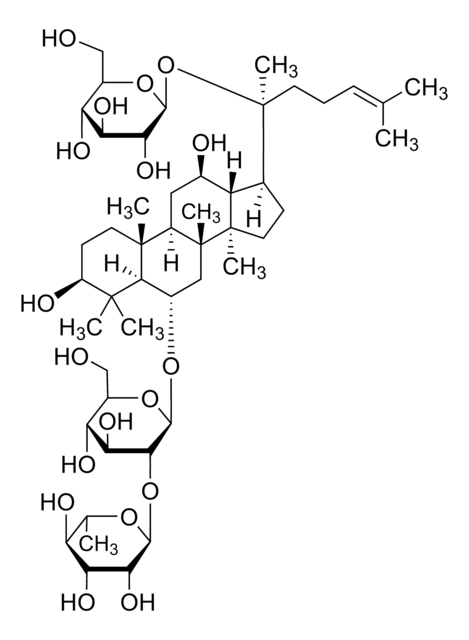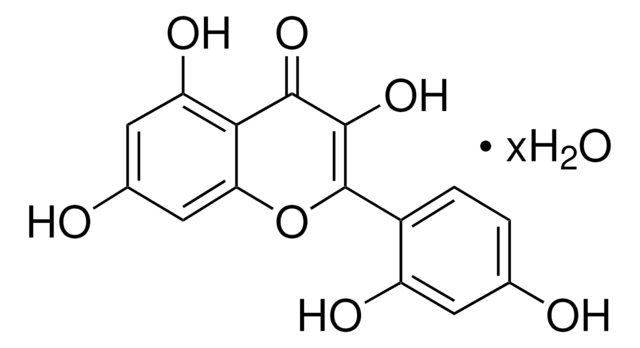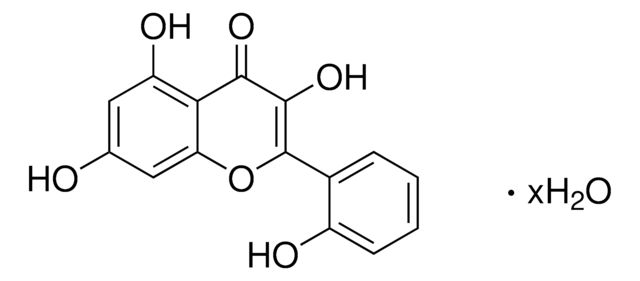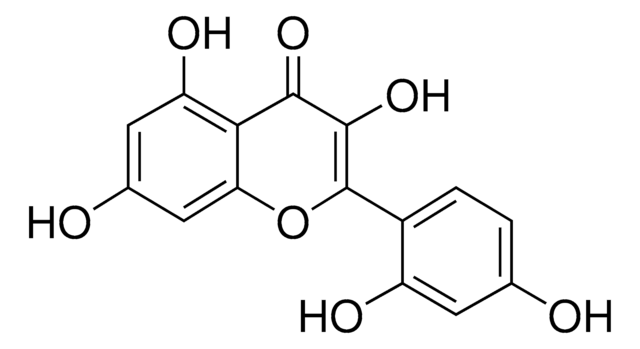73658
Ginsenoside Rh2
analytical standard
Synonym(s):
(3β,12β)-12,20-Dihydroxydammar-24-en-3-yl-β-D-glucopyranoside, 20(S)-Ginsenoside-Rh2
About This Item
Recommended Products
grade
analytical standard
Quality Level
Assay
≥97.0% (HPLC)
shelf life
limited shelf life, expiry date on the label
technique(s)
HPLC: suitable
gas chromatography (GC): suitable
application(s)
food and beverages
format
neat
storage temp.
2-8°C
SMILES string
C\C(C)=C/CC[C@](C)(O)[C@H]1CC[C@]2(C)[C@@H]1[C@H](O)C[C@@H]3[C@@]4(C)CC[C@H](O[C@@H]5O[C@H](CO)[C@@H](O)[C@H](O)[C@H]5O)C(C)(C)[C@@H]4CC[C@@]23C
InChI
1S/C36H62O8/c1-20(2)10-9-14-36(8,42)21-11-16-35(7)27(21)22(38)18-25-33(5)15-13-26(32(3,4)24(33)12-17-34(25,35)6)44-31-30(41)29(40)28(39)23(19-37)43-31/h10,21-31,37-42H,9,11-19H2,1-8H3/t21-,22+,23+,24-,25+,26-,27-,28+,29-,30+,31-,33-,34+,35+,36-/m0/s1
InChI key
CKUVNOCSBYYHIS-IRFFNABBSA-N
Looking for similar products? Visit Product Comparison Guide
General description
Application
Packaging
Other Notes
Choose from one of the most recent versions:
Already Own This Product?
Find documentation for the products that you have recently purchased in the Document Library.
Customers Also Viewed
Our team of scientists has experience in all areas of research including Life Science, Material Science, Chemical Synthesis, Chromatography, Analytical and many others.
Contact Technical Service











